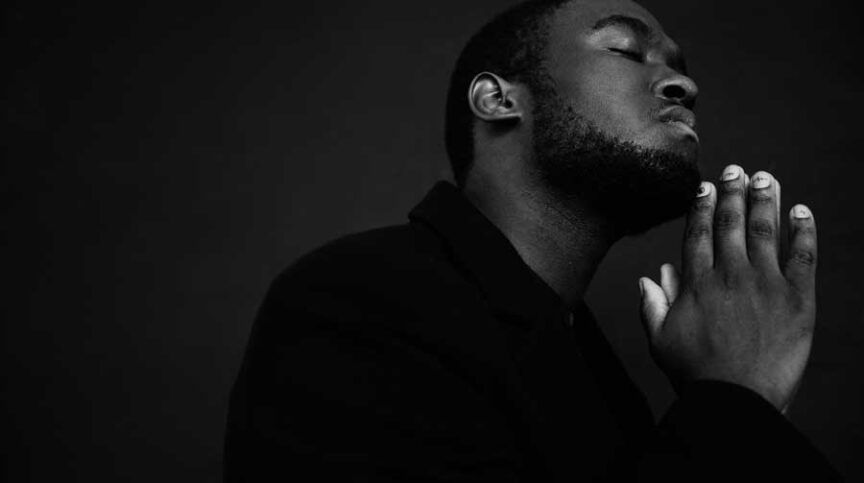Eid al-Adha, Feast of the Sacrifice, marks the end of Hajj and commemorates Prophet Ibrahim’s willingness to sacrifice his son, Ismail, in complete obedience to the command of Allah SWT. When he proceeded to sacrifice his son, Allah SWT substituted a lamb and Ibrahim passed what was a “clear test” (see Qur’an 37:106) from his Lord. Each Eid al-Adha we are reminded of the significance of sacrifice in our lives. We think about the ritual slaughter of animals on the Eid and the distribution of meat to the needy. Allah tells us with regard to animals slaughtered in His name, “Neither their meat nor blood reaches Allah. Rather, it is your piety that reaches Him. This is how He has subjected them to you so that you may proclaim the greatness of Allah for what He has guided you to; and give good news to the doers of good” (Qur’an 22:37). The ultimate sacrifice is the sacrifice of one’s life for the sake of Allah SWT, the willingness to be a martyr for Him and His cause. We can, however, take time after the festivities of Eid al-Adha to reflect on smaller sacrifices that we can make in our lives. Here is one that may not readily come to mind: the willingness to withdraw from the noise and distractions of our lives, including the inclination to talk excessively. How is that a sacrifice?
With social media, many people, especially the young, feel the need to check their phones every five minutes. This is a compulsion to know what’s happening, what the news is, what people are saying on Twitter, how many “likes” your post got in the last five minutes, what the newest grievance is or who is being de-platformed or cancelled. Being out of the “loop” is agonizing. Feeling that one is in the know and on top of things becomes an addiction. But all that virtual activity is not really real. It is not personal or physical reality. It’s the virtual “online” world.” More and more, people are living online rather than in the physical world.
In a survey of 2,000 individuals, 13 to 38 years old, 86 percent reported that they would like to be a social media “influencer,” getting paid to post sponsored content — 86 percent! One might think that a society flourishes if its up-and-coming citizens aspire to be an engineer or physicist or neurosurgeon or librarian or software engineer or nurse or physical therapist or astronomer…on and on. But no — the young people want to be influencers. Basically, they want to get paid to talk, to talk and promote brands. In such a culture, call it an influencer culture, talking is valuable, even profitable. How then does a young person fit in to that culture when they want, instead, to focus on Islamic imperatives of developing character and striving to do good — especially if they encounter the idea that practicing silence lends itself to that developing and that striving. In a “culture of talk,” silence would be avoided like a plague.
Sacrifice: Giving Something Up for the Sake of Something Else
To sacrifice something is to give it up, even if it causes a seeming disadvantage or discomfort, for the sake of something else. The culture of talk, the influencer culture, is all about personality, about being able to come across as authentic and charismatic, to weave a personal narrative into the promotion of merchandise, branding, and consumerism. Imagine a young person surrounded by this materialistic messaging inclining instead to ideas like building character, increasing self-awareness, purifying the self.
Personality, charisma, selling the self — versus — building character, increasing self-awareness, purifying the self. Interestingly, the latter inclination to character, awareness, and purification is Islamically connected to the practice of silence. Being silent, the opposite of talkativeness!
For the youth, growing up in a “talk” culture, practicing silence is truly a sacrifice. First of all, for many, practicing silence is very difficult. Many people, not just the youth of today, find that they have to fill their every waking moment with distraction. In fact, we live in a boisterous world, full of chatter, small talk, gossip, discussion, debate, and noisy entertainment. It’s not easy to sit in silence or remain unspeaking for long. What is it about silence that feels threatening?
It is in the silence that the agitations in our own hearts become audible and demand attention. Whatever pain, anger, resentment, fear, self-pity, guilt, and so on — all rise to the surface of our consciousness in the silence. In fact, we are meant to face these feelings, process them, and put them in a healthy perspective. Isn’t an honest assessment of self at the root of building character; of gaining greater self-awareness; of purifying the soul?
And it is in practicing silence, where assessment of self takes place, that vast realms of wisdom are found. Waheeb ibn Al-Ward said, “We were told that wisdom has ten parts and nine of them are in silence” (“Ihya Ulum al-Deen,” Al-Ghazali). Why is that? The dictionary tells us that wisdom is “having the power of discerning and judging properly as to what is true or right; possessing discernment, judgment, or discretion.” Wisdom is making the best use of knowledge, understanding, and experience so as to discern what is true or right or proper. What impedes making the best use of knowledge, understanding, and experience? — self-delusion, untamed desires, pride, impatience, ego narratives of superiority or inferiority, tendency to blame others for one’s problems…all of these impediments to wisdom are addressed by building character, increasing self-awareness, and purifying the soul. And to do so requires a willingness to enter the silence. To practice silence is to enter a world of quiet, reflection, and self-discovery.
Silence is Wisdom…and So Much More
If silence is wisdom, how easy it would be for us to acquire it! All we have to do is practice silence. Do you doubt that something that appears so easy to do (until one tries it!) would yield us the time-honored treasures of character that so many have sought with fervor and devotion? Can you be persuaded that practicing silence would furnish the soul with wisdom, allowing one to discern what is true and right; to become whole and pure; to engage in the richest form of worship; to inculcate in one’s own self the attributes of marooah (an Arabic word which connotes intelligence, power, bravery, generosity and honor) — these embellishments of the soul are ours if only we practice silence. Here is the evidence:
The Prophet (s) said, “Indeed silence is wisdom but very few practice it” (Al-Bayhaqi and Ibn Hibban).
The Prophet (s) said, “Whoever is pleased to be whole and pure, let him practice silence” (Ibn Abi Al-Dunya and Al-Bayhaqi).
The Prophet (s) said, “Shall I tell you the easiest and richest form of worship and the most comfortable for the body? They answered, ‘yes O messenger of Allah.’ And he said, ‘silence and good character’ ” (Abi Dharr in Tabaqat Al-Muhaddetheen).
Jaber ibn Sumarah, as reported in Ahmad and Al-Tabarani, said, “I used to accompany the Prophet and he was silent most of the time.”
It is reported that the Prophet’s companion, Anas (r) said, “Part and parcel of marooah is for a brother to listen silently to his brother when they speak” (Al-Tareekh by Al-Khateeb).
We should not allow all the noise and distraction of the world and the noise inside our minds to foreclose our inclination to practice silence, to contemplate. We should not allow the noise and constant distraction and our own compulsive talking to limit the moments that our speaking might be remembrance of Allah and the principles of goodness. We should not allow the noise to distract us from the lessons of the straight path whose insights yield understanding about ourselves and the world.
The Prophet (s) said: “…that my silence shall be contemplation, that my speaking shall be remembrance, that my seeing shall be lessons” (Ruzain in the book “Wasayeh al-Rasul”).
Eid al-Adha can remind us about sacrifice, both great and small. Let us sacrifice some of our frenetic time and inclination to talk and distract ourselves…to practice silence.





